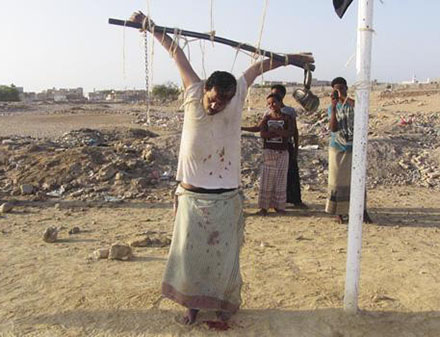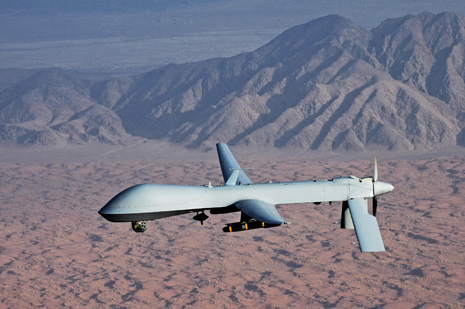AFP dispatches reported that on this date in 2010, Akram al-Samawi
was executed in the presence of the family of the victim, Nassiba al-Aghwani, and his own family, Nader al-Aghwani told AFP. Journalists and the public were kept outside the prison in Taiz, south of Sanaa.
The 32-year-old unemployed man was convicted in November for the rape of his neighbour’s daughter on the roof of his family home last August, after which he smashed her head and threw her corpse off the roof.
Samawi was also ordered to pay 300,000 riyals (about R10 000) in fines and court costs.
Aghwani protested outside the prison, saying the execution should have taken place in public, as in previous executions in Yemen.
He also told AFP he rejected an offer from Samawi’s family to pay up to 15 million riyals in blood money in return for sparing his life, in line with the Islamic sharia laws on which Yemen’s penal code is based.
On this day..
- 1945: Harold Pringle, the last Canadian military execution
- 1530: Johnnie Armstrong, border reiver
- 1723: Thomas Athoe the Elder, and Thomas Athoe the Younger
- 1453: The garrison of Poucques, Jacques de Lalaing's cannonball killers
- 2007: Jafar Kiani, stoned
- 1731: Jose de Antequera, Paraguayan comunero rebel
- 1655: Grete Adrian, Ruethen witch
- 1691: Jack Collet, sacrilegious burglar
- 1983: Aleksandr Kravchenko, in Chikatilo's place
- 1917: Gasim, by Lawrence of Arabia
- 1600: Jean Livingston, Lady Waristoun
- Themed Set: The Ballad
- 1947: Ding Mocun, not as hot a lay in real life

 The very first president of the short-lived (1967-1990)
The very first president of the short-lived (1967-1990)  The
The 








